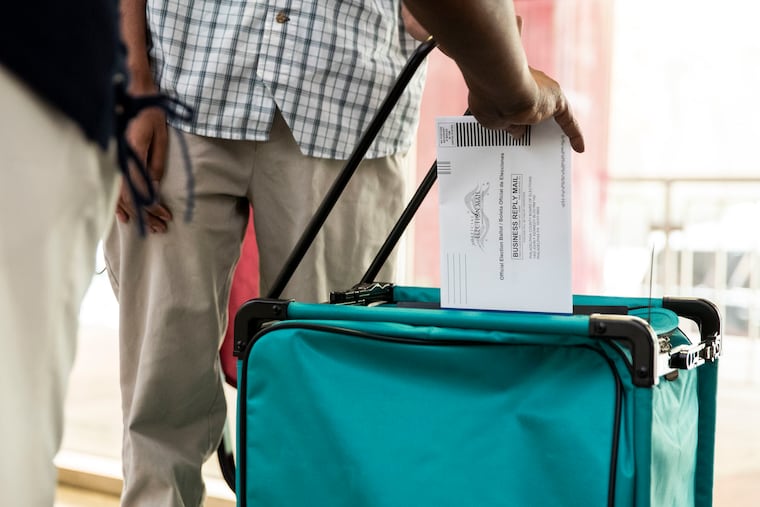Vote yes on all four Philly ballot questions | Endorsement
The Inquirer Editorial Board has reviewed and researched the questions that will be on the 2020 election ballot for Philadelphia voters.

Philadelphia voters will see four questions on their ballots right below the candidates for president, Congress, and state offices — three City Charter amendments and one bond approval. The Inquirer Editorial Board has reviewed and researched the questions and recommends that you vote YES on all three.
Question 1: Unconstitutional stop-and-frisk
Shall The Philadelphia Home Rule Charter be amended to call on the Police Department to eliminate the practice of unconstitutional stop and frisk, consistent with judicial precedent, meaning an officer must have reasonable suspicion that a person is engaged in criminal activity in order to stop that person, and, therefore, an officer cannot stop someone unlawfully because of their race, ethnicity, gender, sexuality, religious affiliation or expression, or other protected characteristic?
Declaring that already unconstitutional stops are unlawful under city law might seem redundant, but unfortunately nearly a decade into efforts to eliminate such stops in Philadelphia, it is necessary. This charter amendment will put the Police Department on notice — every unconstitutional stop is not only wrong but a direct violation of the will of the people of Philadelphia. Vote YES.
» READ MORE: Unconstitutional policing — including stop-and-frisk — should have no place in Philadelphia | Editorial
Question 2: Office of Victim Advocate
Shall The Philadelphia Home Rule Charter be amended to create the Office of the Victim Advocate to advocate for crime victims and to work with victim-services providers to coordinate, plan, train, educate, and investigate issues relating to crime victims?
By creating a cabinet-level Office of Victim Advocate in the city, assistance to victims, functions that are currently spread through the city, state, District Attorney’s Office, and private service providers, can be streamlined. Too often, victim services become wrongly synonymous with more punitive policies and ignore the fact that many people who participate in violence have been victimized themselves. If created, the office’s main focus should be coordinating services and promoting policies that improve connection to services, and not promoting criminal justice policies, as we’ve seen from the state’s office. Vote YES.
Question 3: Citizens Police Oversight Commission
Shall The Philadelphia Home Rule Charter be amended to provide for the creation of a Citizens Police Oversight Commission, and to authorize City Council to determine the composition, powers and duties of the Commission?
Philadelphia has been experimenting with various models of civilian oversight over police for decades. For this effort to be different, the new Citizens Police Oversight Commission, which will replace the current Police Advisory Commission, will need resources and authority — both in making decisions binding over police in some form and in its ability to access information. Vote YES, and keep pressure on Council to ensure the new body is more than a rebrand.
» READ MORE: For new police oversight commission to work, Philly must learn from its past | Editorial
Question 4: Bond question
Should the City of Philadelphia borrow ONE HUNDRED THIRTY FOUR MILLION DOLLARS ($134,000,000.00) to be spent for and toward capital purposes as follows: Transit; Streets and Sanitation; Municipal Buildings; Parks, Recreation and Museums; and Economic and Community Development?
This is a routine question that is required for the city to borrow money. Vote YES.